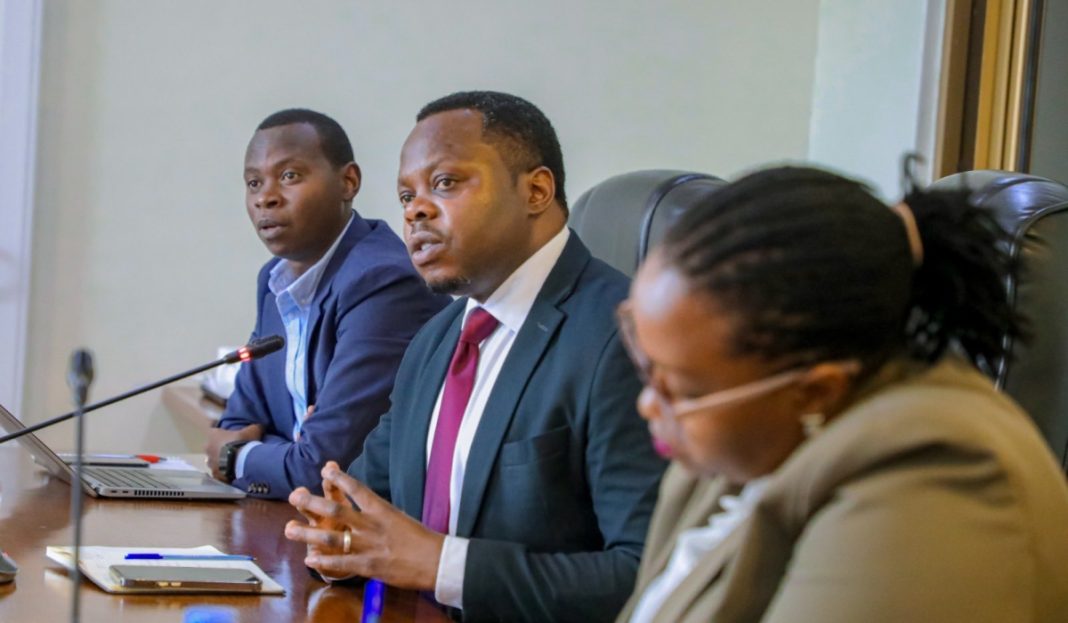Rwandan creators, including musicians, vloggers, and journalists, could soon be able to monetise their YouTube content without relying on third-party countries.
This follows an announcement by Minister of Youth and Arts, Jean Nepo Abdallah Utumatwishima, who said the government is working to have Rwanda added to the list of countries where YouTube monetisation is available.
Currently, Rwanda is not eligible for YouTube monetisation, forcing local creators either to register under other countries or to miss out on earning opportunities altogether.
Speaking to the parliamentary Committee on Education, Technology, Culture, Sports, and Youth on April 22, Utumatwishima said the Ministry of Youth and Arts is collaborating with the Ministry of ICT and Innovation and the Rwanda Utilities Regulatory Authority (RURA) to finalise agreements that would allow ads on YouTube videos viewed within Rwanda.
The minister revealed that Google has formally requested approval from the government to begin running YouTube ads within the country.
“Currently in Rwanda, when you watch a YouTube video, you view it without ads. This situation prevents content creators from earning revenue. If we allow ads to be shown, young people who upload videos would have a greater opportunity to be paid,” he said.
He explained that at the moment, Rwandan YouTubers only earn money from viewers based in countries where ads are enabled.
“When someone in Rwanda watches a local YouTube video, the creator doesn’t earn anything. But if someone watches the same content from a country where ads are active, such as the United States, the creator gets paid,” he clarified.
Minister Utumatwishima noted that ongoing discussions are promising and could soon enable Rwandan creators to earn revenue from local views as well.
“There is encouraging progress in our discussions. Once finalized, content creators in Rwanda will also be able to earn from local viewers, and ads will return. Of course, anyone who prefers an ad-free experience will still have the option to subscribe to YouTube Premium,” he added.
He also pointed out that in other countries, viewers are already accustomed to ads, and that those who choose YouTube Premium not only enjoy an ad-free experience but also continue to support creators financially.
Beneficiaries speak out
William Jules Niyitegeka, a journalist and popular YouTuber known as Chita Magic, welcomed the initiative, saying it would benefit both internet users and the wider economy.
“YouTube splits ad revenue — 45% goes to creators and 55% to YouTube,” he explained, adding that Rwandan creators currently miss out when their content is viewed locally. “If your audience is 100% Rwandan, your earnings are $0,” he said.
Niyitegeka stressed that enabling local monetisation would boost creators’ incomes, support youth employment, and drive national development. “Teaching young people to use social media properly can help them and the country grow,” he noted.
He also pointed out that Rwanda could benefit through taxation. “In the US, creators pay 30% tax on earnings. Rwanda could set its own rate and collect revenue too,” he suggested.
Currently, creators must register in countries like Kenya, Uganda, or Tanzania to access YouTube monetisation.
Jackson Dushimimana, popularly known as RedBlue JD, also stressed the importance of allowing ads on YouTube in Rwanda.
“When ads are enabled, creators’ earnings can increase significantly,” he said, noting that about 60% of many Rwandan creators’ audiences are local and currently do not generate revenue.
“For instance, if a video gets 100,000 views, around 80,000 might be from Rwanda, but creators aren’t paid for them because Google doesn’t earn from those views,” Dushimimana explained.
“Only the 10,000 views from abroad where ads are active bring in revenue. If ads are allowed locally, there’s no doubt earnings would rise,” he added.



